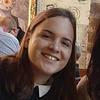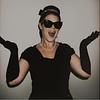Take a photo of a barcode or cover
Cannot keep lying to myself anymore, acceptance is key. I've already lost interest and I wasn't enjoying anymore. I guess, with this, I'm not going to love it as much as the movie.
The inspiration for Jo-Jo Rabbit. This book does not feature magical realism or non-mimetic caricatures of the Third Reich. Rather, it represents Johannes as a Fritzlesque monster.
challenging
dark
sad
tense
slow-paced
Plot or Character Driven:
Character
Strong character development:
No
Loveable characters:
No
Diverse cast of characters:
No
Flaws of characters a main focus:
Yes
dark
tense
medium-paced
Plot or Character Driven:
Character
Strong character development:
Complicated
Loveable characters:
No
Diverse cast of characters:
No
Flaws of characters a main focus:
Yes
dark
mysterious
reflective
sad
tense
slow-paced
Plot or Character Driven:
Character
Strong character development:
Yes
Loveable characters:
No
Diverse cast of characters:
Yes
Flaws of characters a main focus:
Yes
The first half was perfection and then it got really weird.
I was interested in reading this book because it was the source material for Jojo Rabbit which was my favourite movie of 2019. What surprised me was that the movie was only based on the first half of the book - actually, there is a very hard break right in the middle of the book which breaks it in to two very different stories.
The first half of the story is great (the Jojo Rabbit half) although it is a lot darker than the movie and isn't really satirical at all. While in the movie Johannes is a little boy of about 10 who's caught up in all the Nazi propaganda and honestly doesn't know any better, in the book he's a teenager and it's harder to imagine that he'd grow out of his Nazi beliefs. In the movie he learns to see Jews as people after actually meeting one and that's the crack that eventually breaks down the rest of his beliefs in Nazism. This isn't the case in the book and instead of growing he instead changes from a child obsessed with Nazis, to a young man who's obsessed with the girl his family has hidden upstairs.
He never sees Jews as people, he isn't angry that German propaganda lied to him, and he doesn't think less of Hitler even after he commits suicide after losing the war. He just doesn't mention it once the war is over and focuses exclusively on convincing Elsa, the girl upstairs, that he loves her in the most psychopathic way possible. The whole second half of the book is about how they live together, needing each other for different purposes while hating each other and their life but trying to convince themselves that this passes for love.
The whole story is written from his point of view as he's recounting his life. Early in the book he talks about his childhood in a coherent and logical manner making references to specific memories, but by the end (right up to when he starts to tell his story) it becomes the rantings of a madman and I honestly wasn't sure what I was reading sometimes. I honestly thought that he was an unreliable narrator who was imaging his life with Elsa because of how unhinged his actions were and how improbable the story became (there is a scene where other people acknowledge her existence, so I guess everything did happen as he said it did.)
Maybe I was looking too hard for metaphors or symbolism by the end and it was really just intended to show his decent into madness. This, combined with how unsympathetic and unrelatable both Johannes and Elsa become took some of the enjoyment out of the story. It was an alright book, but I would honestly recommend the movie to anyone over the book.
The first half of the story is great (the Jojo Rabbit half) although it is a lot darker than the movie and isn't really satirical at all. While in the movie Johannes is a little boy of about 10 who's caught up in all the Nazi propaganda and honestly doesn't know any better, in the book he's a teenager and it's harder to imagine that he'd grow out of his Nazi beliefs. In the movie he learns to see Jews as people after actually meeting one and that's the crack that eventually breaks down the rest of his beliefs in Nazism. This isn't the case in the book and instead of growing he instead changes from a child obsessed with Nazis, to a young man who's obsessed with the girl his family has hidden upstairs.
He never sees Jews as people, he isn't angry that German propaganda lied to him, and he doesn't think less of Hitler even after he commits suicide after losing the war. He just doesn't mention it once the war is over and focuses exclusively on convincing Elsa, the girl upstairs, that he loves her in the most psychopathic way possible. The whole second half of the book is about how they live together, needing each other for different purposes while hating each other and their life but trying to convince themselves that this passes for love.
The whole story is written from his point of view as he's recounting his life. Early in the book he talks about his childhood in a coherent and logical manner making references to specific memories, but by the end (right up to when he starts to tell his story) it becomes the rantings of a madman and I honestly wasn't sure what I was reading sometimes. I honestly thought that he was an unreliable narrator who was imaging his life with Elsa because of how unhinged his actions were and how improbable the story became (there is a scene where other people acknowledge her existence, so I guess everything did happen as he said it did.)
Maybe I was looking too hard for metaphors or symbolism by the end and it was really just intended to show his decent into madness. This, combined with how unsympathetic and unrelatable both Johannes and Elsa become took some of the enjoyment out of the story. It was an alright book, but I would honestly recommend the movie to anyone over the book.
I couldn't finish the book. the selfishness and lust of the main character made the story unenjoyable.
dark
informative
sad
tense
slow-paced
Plot or Character Driven:
Character
Strong character development:
No
Loveable characters:
Complicated
Diverse cast of characters:
No
Flaws of characters a main focus:
Yes
I thought the beginning was amazing. The little boy having the complete opposite views of his family because of how he was taught at school. It really made me believe how Hitler was able to gain power. Then I book got a bit samey and the characters became unlikable. I never felt sympathy for Elsa, which I think is a major flaw.
adventurous
dark
reflective
sad
tense
medium-paced
Plot or Character Driven:
Character
Strong character development:
Yes
Loveable characters:
Complicated
Diverse cast of characters:
Yes
Flaws of characters a main focus:
Yes








